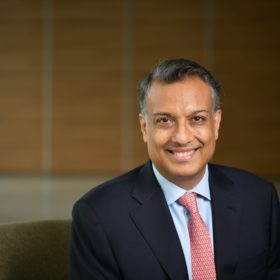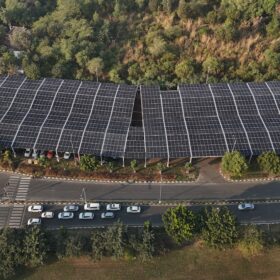Energy Efficiency Services Limited (EESL), a joint venture of public sector undertakings under the Ministry of Power, is developing business models for collaborating with private sector Energy Service Companies (ESCOs) and broadening its service offerings in the Building Energy Efficiency Programme (BEEP), in view of the huge market potential in the country. This is being done as a part of the World Bank India Energy Efficiency Scale-up Programme, with technical assistance from the USAID MAITREE Programme.
BEEP is being implemented since 2017. Currently, as many as 11,000 buildings have been covered under this programme through the retrofitting of inefficient appliances with energy-efficient products like LED lights, EE fans, and super-efficient air conditioners. EESL has invested around INR 350 crore in this programme for far.
Recently, a “Consultation Workshop on EESL’s Private Sector ESCO Engagement Initiative” was conducted at Delhi’s Scope Complex. Senior dignitaries from EESL, United States Agency for International Development (USAID), and The World Bank came together to discuss the importance of having private sector ESCOs for accelerating market transformation towards products and services aimed at energy efficiency.
Sharing his thoughts, Arun Kumar Mishra, Chief Executive Officer (CEO), EESL, said, “We, along with USAID and The World Bank are looking forward to an institutional initiative wherein the lending rate of banks depends not just on business domain and institutions practices but also on how efficient their energy practices are. It is our endeavor to make a bigger impact and ensure a better future for the country. Partnership with private sector ESCOs is integral to our vision of scaling up BEEP’s scope and enhancing the country’s energy efficiency portfolio.”
John Smith-Sreen, Director, Indo-Pacific Office, USAID/India, said, “We have had a long history of collaboration with India in areas like energy efficiency, private sector engagement, greenhouse gas mitigation. It is a very strong partnership and we have had very concrete results. This workshop today is in continuation of that engagement. Energy efficiency is very important for rational use of electricity. Optimizing and promoting energy efficiency from different energy sources can drive a significant amount of social and economic opportunity for India and for the world.”
Ashok Sarkar, Senior Energy Specialist, The World Bank, said, “The energy efficiency market in India is estimated to be around $10 billion and, so far, the contribution of ESCOs has been very small. When it comes to achieving climate actions goals like net-zero by 2070, we need at least 60 times more private investment globally than what we have today. Private sector ESCO support is the key. EESL has done wonderfully well in the past five years; we can make it even better by working with smaller ESCOs.”
S.P. Garnaik, Executive Director [Business Unit Head], addressed the queries from participating private firms and interested ESCO’s. Also presents at the Occasion were Animesh Mishra, Chief General Manager [Head – Sales & PRCC] and Girja Shankar, General Manager [ Head – CDP], EESL interacted with media for all respective communications and market outreach to enable program objectives. Senior officials present during the workshop also discussed new areas as well as partnership and business models for energy efficiency. They also discussed roles, responsibilities and risk-sharing mechanisms between EESL, private ESCOs and clients, as well as methods of Measurement and Verification (M&V) for scale-up.
About EESL:
Energy Efficiency Services Limited (EESL), under the administration of Ministry of Power, Government of India, is working towards mainstreaming energy efficiency and is implementing the world’s largest energy efficiency portfolio in the country. Thus far, EESL has distributed over 36 crore LED bulbs and retrofitted over 1.22 crore smart LED streetlights across India through self-sustaining commercial models. It has pioneered innovative business approaches to successfully roll-out large-scale programs that allow for incentive alignment across the value chain and rapidly drive transformative impact.





